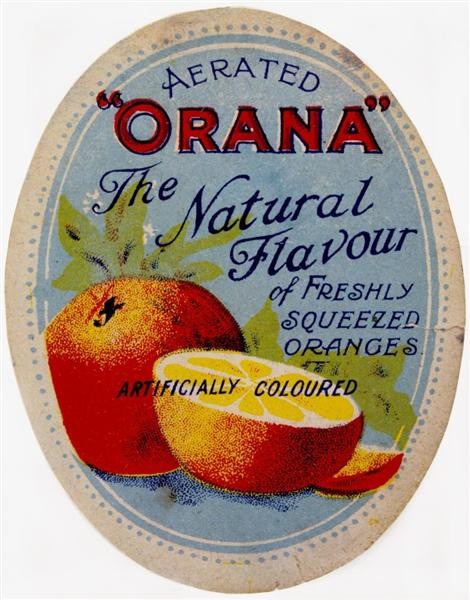What's a "Soft Drink"? Gospel, Temperance, and (Not) Raising a Glass
By Kate Evans, Historian in Residence, State Library of Queensland | 17 May 2011
In July 1885, Helen Ferguson had to pause in the middle of describing an event to her sister in Scotland, to explain what a "soft drink" was. She'd been to the Exhibition Buildings in Brisbane to an event that was full of gospel and storytelling, laughter and tears, and a great pinning-on of ribbons . . . and "soft drinks" were served which, if you're wondering, is what they called "non-intoxicants".

"General Booth the great advocate of the Blue Ribbon Movement is here at present and the Exhibition buildings are crowded and hundreds unable to obtain admission . . . The meetings combine the gospel and temperance and I do hope there will be a revival."
The Red Ribbon of HIV Aids awareness has been in use since the 1980s, and since then more and more ribbons are worn regularly as markers of social issues; one hundred years before that, the blue ribbon showed the wearer had taken a pledge of abstinence from alcohol.
The "Blue Ribbon Movement" of the 1880s was an international one. It has a complex history and relationship to other temperance movements both in Australia and around the world - from its charismatic style to the use of the ribbons themselves (ostentatious? genuine? easily put aside?), to rumours of the misappropriatin of funds in some places. It was also immensely popular, while some other movements that had been working for years, on both personal and social reform, did not capture the imagination in the same way. Feminist organisations in Australia (such as the Women's Christian Temperance Union), for example, had long campaigned on issues of sobriety as a way to address what was not-then called Domestic Violence, and were often called Wowsers and worse for their pains.
Scots woman Helen Ferguson was religious and upright, Presbyterian and given to asides about the oddness of Catholics and the perfidy of Sunday trading. She had quite a sense of humour and was not afraid of looking as fiercely at herself as at others (as she said one day, when it was hot - February in Brisbane! - and the children were sick, "I feel used up and consequently low in the spirits and (say this low) very high in the temper") But for all her commitment to the cause, she was also a little amused by the meeting she attended, surrounded by the other devotees of temperance.
Because the music was an important part of it. Hymns to uplift the soul, be as intoxicating as anything out of a bottle, and keep those feet marching on the right path. Military images were much in evidence. And the pleasure of her diary, is the way Ferguson takes us inside an event. She's a participant, with an eye for detail. And one rousing hymn, she says, was sung over and over and over again, until she wanted to laugh. Really wanted to laugh. Had to concentrate hard on maintaining her respectable air.
Richard T Booth, though, didn't make her want to laugh - although his reputation lead her to expect someone rather different:
"I expected to see a portly impressive figure but instead of that a small slim wiry man with no whiskers and a heavy moustache but with exceedingly bright eyes and a restless agility in every movement of his body."
But once she got over this lack of fit with what she'd heard and what she saw; not to mention the fit of the giggles that was threatening to undo her, then she felt the force of his charisma. This was a man who, when he was in Australia, lead to thousands and thousands donning that ribbon - while being sent-up by other parts of society. But the power of his speech making was, evidently, something that could sway a crowd:
"He has anecdotes pathetic and droll and some times you could weep and sometimes laugh but he never loses sight of the main topic, the drunk. Neither does he exalt temperance to fill the place of the gospel. He told us plainly that all it would do for us after death would be to give us a decent funeral, it was of no use behind the pearly gates."
A dry funeral, however.
Not as dry as they became in America, though, because Australia never did embrace prohibition.
Ferguson did note, however, that the movement had had an impact on politics, and an increase in duty on alcohol, "and lighter sales are making the publicans howl I can tell you."
Kate Evans, Historian in Residence, John Oxley Library, SLQ
Item referred to: OM75-91, Helen Ferguson Diary, John Oxley Library, State Library of Queensland, Australia. Please follow through hypertext links above for the (many) other items related to Temperance in the John Oxley Library collection, or click here and scroll through a fascinating list.
Comments
Your email address will not be published.
We welcome relevant, respectful comments.